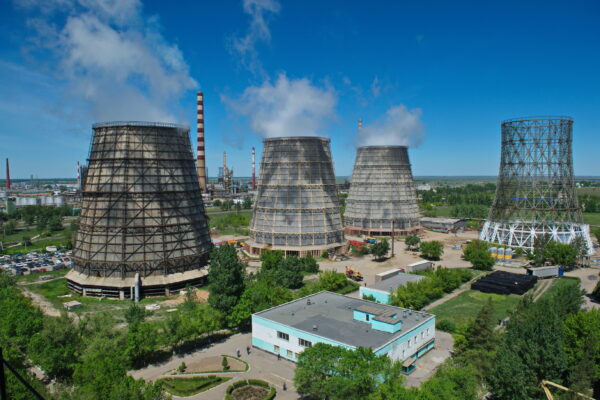Just as renewable energy has overtaken coal as the major source of electricity globally for the first time in history, Central Asian countries are struggling to balance their Paris Agreement commitments with the economic realities.
From Kazakhstan’s U-turn on coal to Central Asia’s embrace of nuclear energy, the recent developments in the renewable energy sector reflect both global currents – from the U.S. president’s disdain for climate change consensus to rising energy demands of AI hyperscalers – and domestic economic and infrastructural realities.
The Nuclear Option
As renewables introduce greater inflexibility into power systems and subsidies strain fiscal accounts, Central Asian governments are seeking middle-ground solutions that reconcile fiscal and environmental priorities. From this point of view, nuclear power offers an appealing alternative – neither as intermittent as renewables nor as emission-intensive as hydrocarbons, and grounded in the region’s rich uranium endowments.
Last year Kazakhstan and Uzbekistan, the first and and the fifth largest global suppliers of uranium, respectively, overcame their historical reluctance to nuclear energy adoption. Kazakhstan held a national referendum on nuclear energy in October 2024 and Uzbekistan announced in May 2024 it would construct a smaller scale nuclear power plant (NPP) installation based on small modular reactors (SMRs).
Since then both countries have greatly expanded their nuclear ambitions.
Kazakhstan announced that it will build not one but three NPPs, allowing the country to offset the inherently geopolitical aspect of long-term dependency on partner countries with one contract granted to Russia’s Rosatom and two other plants likely to be awarded to China’s CNNC. In turn, Uzbekistan’s initial plan to build a 300 MW plant based on Rosatom’s SMRs has been revised to incorporate two large 1000 MW reactors, taking the site production capacity to 2100 MW.
Securing funding for NPP expansion, however, might become a complex political and economic issue. The initial SMR stage of the NPP in Uzbekistan’s Jizzakh region was estimated at around $1 billion, fully funded by the state; the projected expansion would
Continue Reading on The Diplomat
This preview shows approximately 15% of the article. Read the full story on the publisher's website to support quality journalism.
